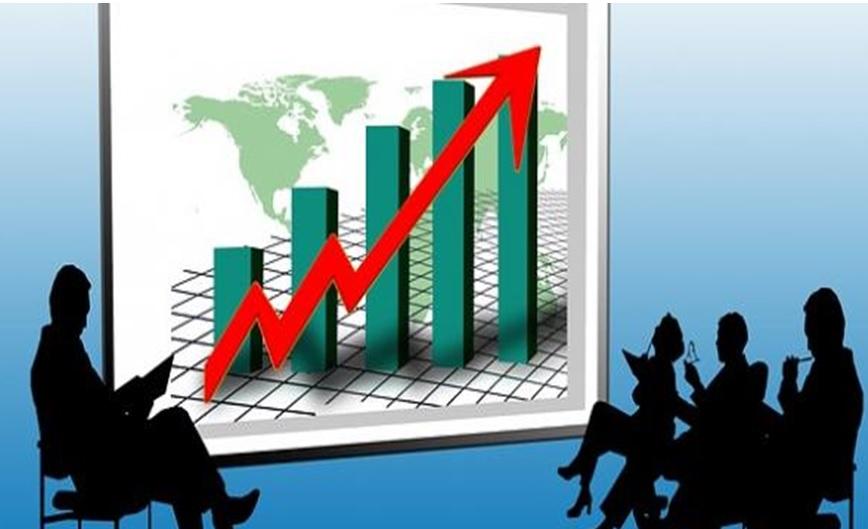Multiple roads ... and inflation one & nbsp;
Rapid growth in cash supply and high commodity prices raises concerns about inflation.
Oil did it recently and started to rise above $ 70 a barrel, while the growth of money in the United States reached 25% for the year 2020, which is the fastest rate ever.
But how much investor concerns?And why?
The latest numbers of inflation in the United States seem to confirm the worst concerns and that we are heading towards a continuous inflation.
The main inflation rate in America increased to 4.2% on an annual basis in April, the highest level since September 2008. Meanwhile, the basic inflation, which excludes food and energy prices, increased to 3%, a level of last time seen in 2006.
Certainly investors have a good cause of fear of high inflation.It would undermine the stock market evaluations that are currently assuming, which is unreasonable, that the very low interest rates that are close to zero will continue to almost indefinitely, especially after the American banking in its last economic expectations confirmed that he does not intend to raise the interest rate for 3 years.
But if the high inflation continues, the central banks will be everywhere under pressure to tighten liquidity and curb them.The bond markets will start pricing at higher rates, and with investor reassessing shares, a period of financial fluctuations will arise with a decrease in stock and bond markets.
Why can we see high enlargement coming in the United States?
Reason number 1 - Bactering of inflation is less than its true value
We believe that the indicators that we measure inflation reduce its true value.Real inflation may be higher than these indicators.
It is recognized that there are problems in measuring the prices of services during the pandemic. The closure of many institutions led to the inability to collect data in the normal way.Instead, some prices were estimated or simply recorded as not available.
However, the largest source of non -measurement stems from the change in spending patterns during the epidemic.
For example, stone procedures led to people staying in homes, reducing travel, eating meals abroad and increasing spending on food and drink at home.

Consequently, the weights used in the indicators of inflation and consumer basket are based on regular spending patterns - do not pick up the change in the Corona economy.
It is clear that this imbalance is a problem that is unique to this pandemic;However, it should fade with the return of spending patterns to normal in 2021.
Reason No. 2 - Incentives and increased consumption
The second concern is that the increase in the growth of funds is a surplus of liquidity, which will create a boom in spending once the natural activity resumes.Strong demand will force prices to rise.
Financial and monetary incentives during the closure periods led to an accumulation of deposits, especially in the Al -Esrah sector, where spending was curbed, and companies deposits increased. This was reflected in the high savings rate.
Although the high cash deposits is not unusual during the contraction periods, the main question is whether these deposits will be spent, and if this is the case, what is the extent of speed?
Reason No. 3 - shock aspect of the show
The third and most dangerous reason is that inflation can come as a result of the trauma side of the show, or as a result of the poor evaluation of the impact of financial and monetary policies in the long run.
If there are permanent changes in spending patterns as a result of the epidemic, then this will inevitably re -customize resources.Workers will turn into the sectors that have become more required.These transformations are difficult.It may not be easy for the worker to re -acquire skills for new professions.This may lead to a period of high unemployment.
The inflationary threat comes later, so excessive stimulus and financial stimulus can lead during the high unemployment period to inflation because the ability of the offer to the economy is not significant.
However, it is too early to make an evaluation but a legitimate concern.
(Prepared by: Mohamed Taraby, economic analyst at an Arab angle, a professor of lecturer and head of the Department of Financial and Economic Sciences at Rafic Hariri University in Lebanon)
(Edit Yasmine Saleh, to communicate: yasmine.saleh@refinitiv.com)
© Zawya 2021
A statement of evacuating the responsibility of the corner platform is provided exclusively angle platform articles for media purposes;The content does not provide any legal, investment or tax advice, or any opinions related to suitability, profitability or strategic value, whether investment or business portfolio.For terms and conditions










